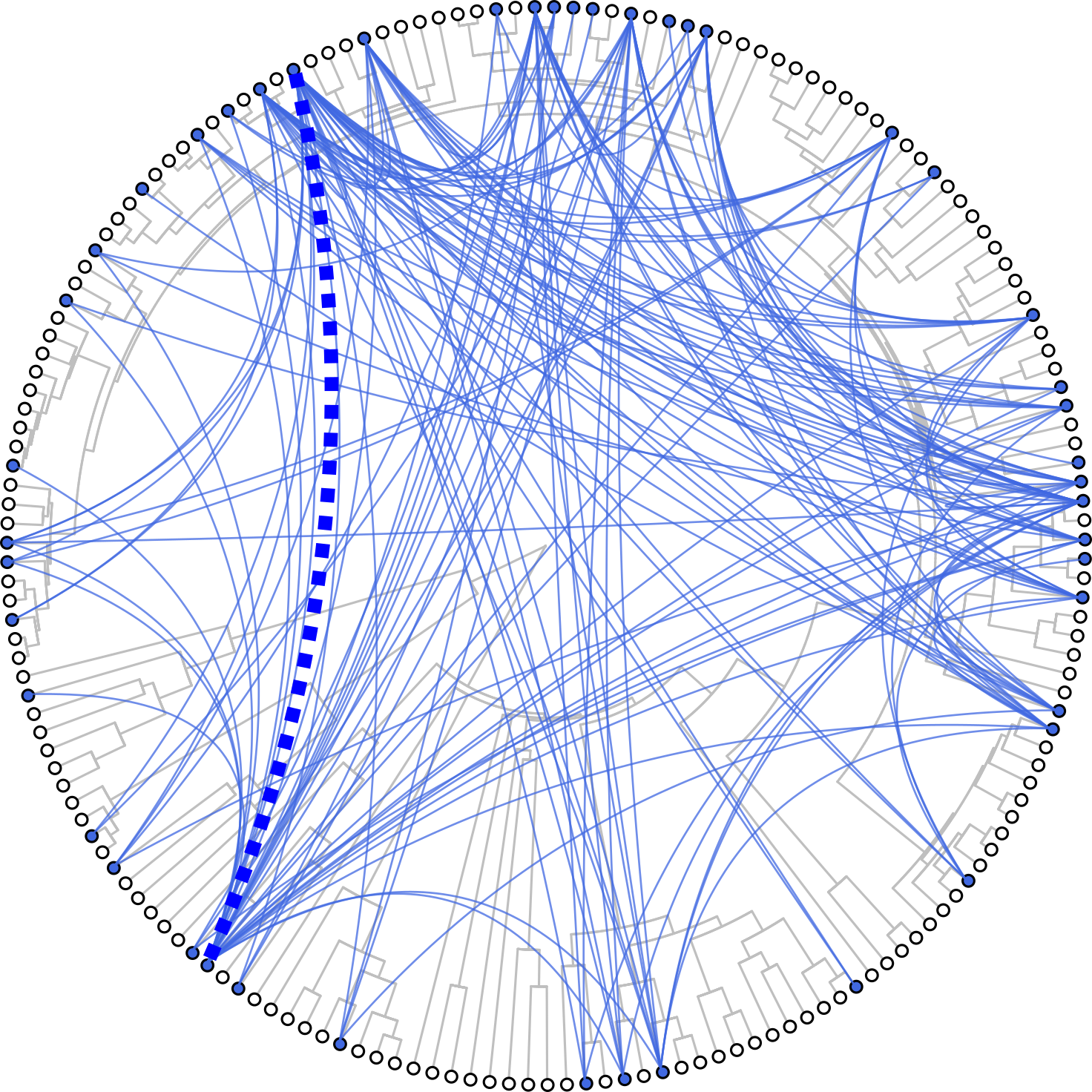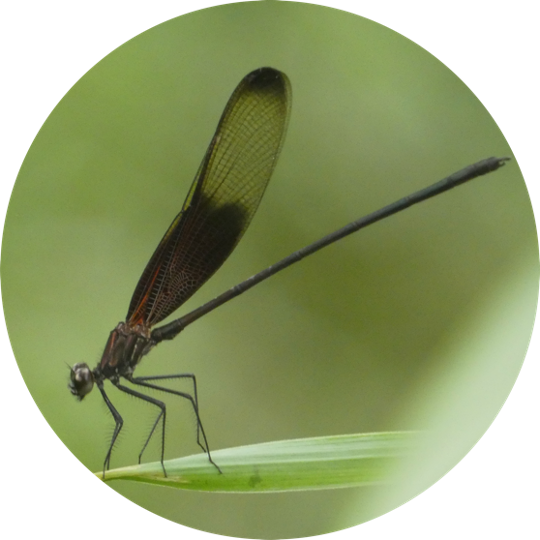Research
We combine the development of theory & statistical tools with
empirical investigations to test hypotheses about how
species interactions drive trait evolution and patterns of biodiversity
We combine the development of theory & statistical tools with
empirical investigations to test hypotheses about how
species interactions drive trait evolution and patterns of biodiversity

How does competition between species impact evolution and range dynamics? Comparative analyses provide a powerful way to address this question, yet, relative to approaches for analyzing species independently, there are fewer methods for testing whether species interactions drive macroevolutionary and macroecological change. Our research thus combines development of new phylogenetic comparative methods with empirical applications to test hypotheses about the impact of competition on trait and range evolution.
 Our research on rubyspot damselflies (Hetaerina spp.) demonstrates how behavioural interference (costly territorial and reproductive interactions between different species) has shaped the trajectory of trait and range evolution in this genus. Currently, we are carrying out NERC-funded fieldwork and genomic analyses to characterise how interactions between species at a local scale have scaled up to generate the landscape scale patterns we observe today.
Our research on rubyspot damselflies (Hetaerina spp.) demonstrates how behavioural interference (costly territorial and reproductive interactions between different species) has shaped the trajectory of trait and range evolution in this genus. Currently, we are carrying out NERC-funded fieldwork and genomic analyses to characterise how interactions between species at a local scale have scaled up to generate the landscape scale patterns we observe today.